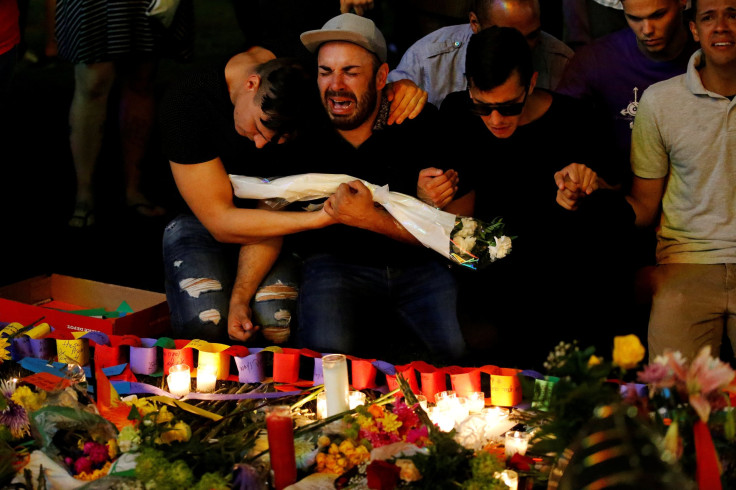Orlando Shooting: Justice To Release Nightclub Killer Transcripts, Lynch Says

This story was updated at 10:48 a.m. EDT
U.S. Attorney General Loretta Lynch confirmed the Justice Department would release limited transcripts of the calls Omar Mateen made to police as he slaughtered 49 people at an Orlando, Florida, nightclub last week.
In an interview on CNN’s “State of the Union” Sunday morning, Lynch declined to say whether Mateen’s wife, Noor Salman, would be charged as an accomplice in the massacre that also left 53 people wounded, saying the investigation is still in its early stages.
Investigators are attempting to determine what motivated Mateen, 29, who criticized U.S. policies and pledged his allegiance to the Islamic State group during the mass shooting.
Mateen entered the Pulse nightclub in Orlando and opened fire early June 12, taking breaks amid the carnage to call police, communicate with his wife and post on Facebook. He was shot to death by police who stormed the building to free his hostages.
Lynch said the “substance” of the conversations would be released Monday. She said Mateen did not get into his feelings about gays and lesbians.
“This was an act of terror and an act of hate targeted against a community, the [lesbian, gay, bisexual and transgender] community, the Latino community. The LGBT community far too often is the victim of these types of crimes,” Lynch said.
The attorney general said investigators are going over earlier FBI investigations into Mateen and praised the gun shop owner whose employees refused to sell Mateen any ammunition or body armor because they found him suspicious.
Lynch said it was too early to say whether Mateen’s wife would be charged with any crime. “We’re not going to comment on anyone else’s role at this time,” she said.

Lynch said on NBC’s “Meet the Press” there is no indication as yet that Mateen was being directed from overseas.
“He was consuming radical jihadist information online,” Lynch said, adding investigators are trying to determine “what was the point that actually led him to pick up that gun.”
U.S. Sen. Jeff Sessions, R-Ala., a strong supporter of Donald Trump, echoed the likely Republican presidential nominee’s call for a pause in immigration from countries with histories of terrorism, although he stopped short of insisting on a complete ban, saying businessmen and diplomats would continue to have access to the U.S.
“You don’t have a constitutional right to come to America,” Sessions said. “We respect your religion in this country ... but a person with an ideology that goes beyond normal religion and believes you can kill gays and kill people who change their views about the religion they have — that’s a dangerous thing and we do not have to admit people like that.”
When pressed, Sessions said countries such as Afghanistan, Egypt, Iraq, Pakistan and Syria should be targeted because they are among “quite a number of countries that sent people who become terrorists.”
Sessions said the beliefs of Mateen’s parents should have been examined before they were allowed to settle in the U.S., saying Mateen’s father “was close to the Taliban.”
“We can’t admit everybody in the world. We don’t have a duty to admit people who might place Americans at risk,” Sessions said.
© Copyright IBTimes 2024. All rights reserved.












